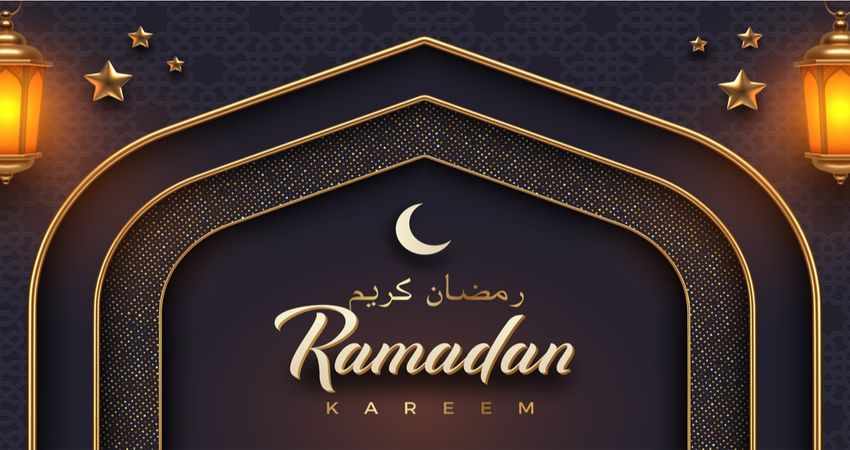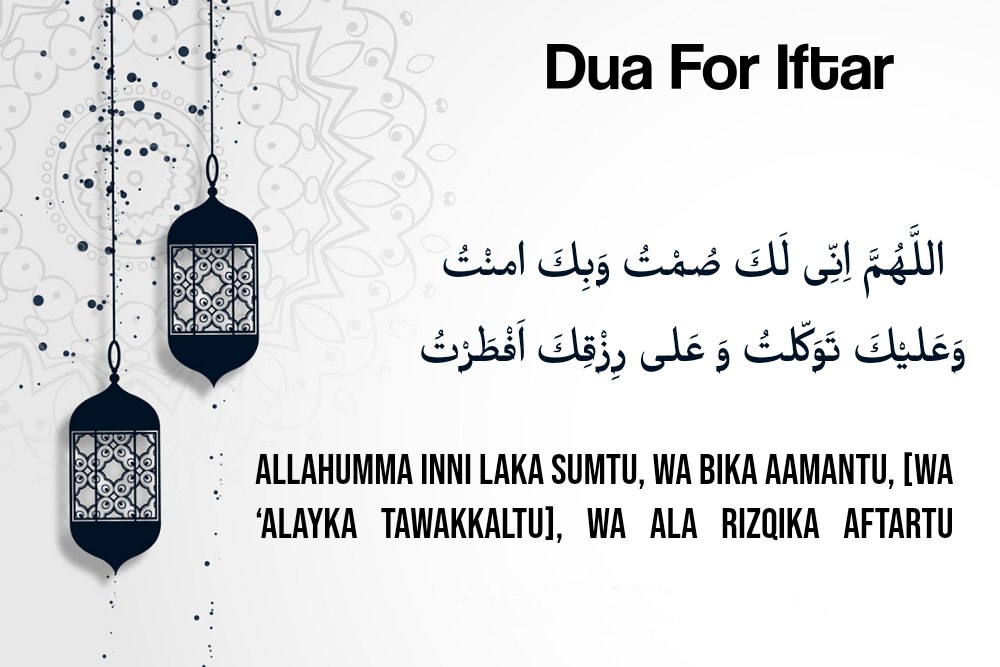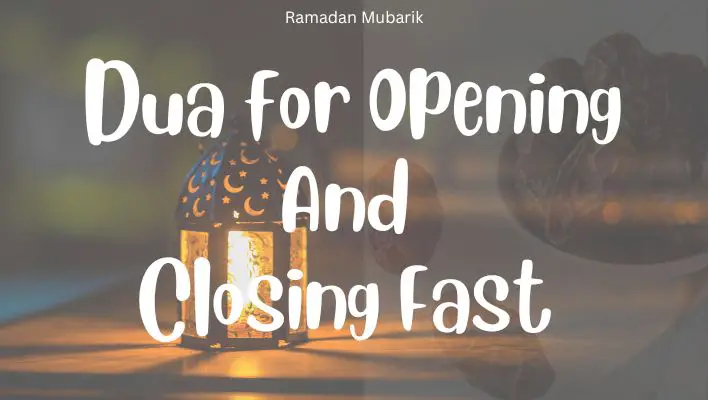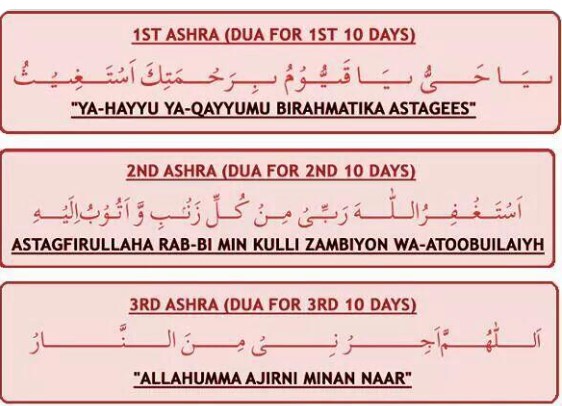Ramadan is the ninth month of the Islamic calendar and is considered the holiest month of the year for Muslims. During Ramadan, Muslims fast from sunrise to sunset as a form of worship and devotion to Allah. Fasting is not only an act of physical discipline, but it is also a way to purify the soul, increase one’s faith, and draw closer to Allah. One of the most important moments during Ramadan is the time of iftar, which is the time when Muslims break their fast at sunset. The Iftar Dua is a short prayer that Muslims recite at this time, expressing gratitude to Allah for providing sustenance and blessings throughout the day. In this article, we will explore the significance of the Iftar Dua in Ramadan, its meaning, how to recite it, and other duas that Muslims can recite during the holy month.
Table of Contents
The Importance of Iftar in Ramadan (breaking fast dua)
Ramadan is the ninth month of the Islamic lunar calendar and is considered the most sacred month for Muslims worldwide. During this month, Muslims observe fasts from dawn to dusk, refraining from eating, drinking, and engaging in any sinful behavior.
The fast is broken at sunset with a meal called “iftar”, which is a critical moment in the daily life of Muslims during Ramadan. The importance of iftar in Ramadan is significant for several reasons.
Firstly, iftar is a time to celebrate the blessings of the day and the act of worship that has been carried out. Muslims are encouraged to break their fast with dates and water, following the example of Prophet Muhammad.
Secondly, iftar is a time for families and friends to come together and share the meal. It is a time to strengthen bonds and create unity within the community. In many cultures, it is customary to invite guests to share the iftar meal, and it is considered a virtuous act to feed the hungry during Ramadan.
Thirdly, iftar is a time for reflection and gratitude. After a day of fasting, Muslims are encouraged to recite the iftar dua, thanking Allah for the sustenance and blessings that have been provided.
In addition, iftar is a time to prepare for the night prayers, known as Taraweeh, which are offered after Isha prayers. Muslims believe that during Ramadan, the rewards for good deeds are multiplied, and engaging in prayer and other acts of worship during this time is highly recommended.
In conclusion, iftar holds great significance in the month of Ramadan. It is a time to celebrate the blessings of the day, strengthen bonds within the community, reflect on gratitude, and prepare for the night prayers. The iftar dua is an essential part of this ritual and serves as a reminder of the blessings that have been bestowed upon us.
Understanding the Iftar Dua
The Iftar Dua is a short prayer that is recited by Muslims at the time of breaking their fast during Ramadan. It is considered an essential part of the iftar ritual and is recited to express gratitude to Allah for providing sustenance and blessings throughout the day.
The dua, which is usually recited in Arabic, has a simple and straightforward meaning, conveying the message of gratitude and faith in Allah. The Arabic Iftar Dua is as follows:
اللَّهُمَّ اِنِّى لَكَ صُمْتُ وَبِكَ آمَنْتُ وَعَلَى رِزْقِكَ اَفْطَرْتُ
Translation: “Oh Allah, I have fasted for You and I believe in You and I break my fast with Your sustenance.”
The dua is a reminder of the blessings and rewards that come with observing the fast, and it emphasizes the importance of faith and trust in Allah. The dua is also an expression of gratitude to Allah for the food that has been provided to break the fast, as it is believed that Allah is the ultimate provider of all sustenance.
The Iftar Dua is recited at the time of breaking the fast, just before consuming the first bite of food or drink. It is a moment of reflection and gratitude, and it is encouraged to recite the dua with sincerity and concentration.
In addition to the Iftar Dua, there are many other duas that Muslims recite during Ramadan, including the Taraweeh prayers and the Tahajjud prayers. These duas serve as a means of connecting with Allah and seeking His guidance and blessings during the holy month.
The Arabic Iftar Dua and its Translation
The Arabic Iftar Dua is a prayer that Muslims recite at the time of breaking their fast during Ramadan. The dua is recited in Arabic and has a simple and straightforward meaning that conveys gratitude and faith in Allah. Here is the Arabic Iftar Dua and its translation:
Arabic: اللَّهُمَّ اِنِّى لَكَ صُمْتُ وَبِكَ آمَنْتُ وَعَلَى رِزْقِكَ اَفْطَرْتُ
Translation: “Oh Allah, I have fasted for You and I believe in You and I break my fast with Your sustenance.”
The dua starts with the phrase “Allahumma”, which means “Oh Allah.” This is a common way to start prayers in Arabic and is used to call upon Allah.
The next phrase, “inni laka sumtu,” means “I have fasted for You.” This phrase expresses the act of fasting as an act of worship and devotion to Allah.
The phrase “wa bika amantu” means “and I believe in You.” This phrase expresses the Muslim’s faith in Allah and acknowledges that all actions, including fasting, are done to please Him.
The last phrase, “wa ‘ala rizqika aftartu,” means “and I break my fast with Your sustenance.” This phrase acknowledges that all food and drink come from Allah and expresses gratitude for the blessings provided.
In conclusion, the Arabic Iftar Dua is a short prayer that conveys gratitude and faith in Allah. The translation of the dua emphasizes the act of fasting as an act of worship and devotion, expresses faith in Allah, and acknowledges His blessings and sustenance.
The Meaning Behind the Iftar Dua
The Iftar Dua is a short prayer that Muslims recite at the time of breaking their fast during Ramadan. It is a simple prayer that expresses gratitude and faith in Allah. The dua has a deep meaning behind it that goes beyond the words themselves.
The Iftar Dua is a reminder of the spiritual significance of fasting and its relationship to faith. It is a statement of submission to Allah and a recognition that everything, including food and drink, is ultimately provided by Him.
The phrase “inni laka sumtu” (I have fasted for You) is a reminder that fasting is not just about abstaining from food and drink but is an act of worship and devotion to Allah. It is an opportunity to purify oneself spiritually and to develop a deeper connection with Allah.
The phrase “wa bika amantu” (and I believe in You) expresses faith in Allah and the belief that all actions, including fasting, are done to please Him. It is a reminder that our actions should be guided by faith and that they should be performed with sincerity and devotion.
The phrase “wa ‘ala rizqika aftartu” (and I break my fast with Your sustenance) acknowledges that all blessings, including food and drink, come from Allah. It is a reminder that we should be grateful for the blessings that we have and that we should never take them for granted.
In conclusion, the Iftar Dua is a simple prayer that has a deep meaning behind it. It is a reminder of the spiritual significance of fasting and the importance of faith and gratitude in our lives.
When to Recite the Iftar Dua
The Iftar Dua is a short prayer that Muslims recite at the time of breaking their fast during Ramadan. It is usually recited just before consuming the first bite of food or drink at the time of iftar.
In Islam, the time of iftar is considered a special time of the day when the fast is broken, and it is recommended to recite the Iftar Dua at this time. Muslims believe that reciting this prayer with sincerity and concentration is a way to express gratitude to Allah for providing sustenance and blessings throughout the day.
It is important to note that while the Iftar Dua is a recommended prayer, it is not obligatory. Muslims may choose to recite it or not depending on their personal preference or circumstances. Some Muslims may prefer to recite other prayers or supplications at the time of iftar, and this is also acceptable.
In addition to reciting the Iftar Dua, Muslims also perform other acts of worship during Ramadan, such as praying, reading the Quran, and giving charity. These acts of worship are believed to bring spiritual benefits and help Muslims develop a deeper connection with Allah.
How to Recite the Iftar Dua
Reciting the Iftar Dua is a simple and straightforward process. Here are the steps to follow:
- Wait for the time of iftar: The Iftar Dua is recited at the time of breaking the fast, which is usually at sunset. It is important to wait until the iftar time to recite the dua.
- Raise your hands: Begin by raising your hands up to your ears while facing the Qiblah (the direction of the Kaaba in Mecca) as you would for any other dua.
- Recite the dua: The dua is recited in Arabic, so it is helpful to memorize it beforehand or have it written down in front of you. The Iftar Dua is: “Allahumma inni laka sumtu wa bika amantu wa ‘ala rizqika aftartu.” (Oh Allah, I have fasted for You and I believe in You and I break my fast with Your sustenance.)
- Break your fast: After reciting the dua, break your fast by consuming the first bite of food or drink. It is recommended to break your fast with a few dates or a sip of water before consuming other foods.
- Thank Allah: After breaking your fast, it is recommended to express gratitude to Allah by saying “Alhamdulillah” (All praise and thanks are due to Allah).
In conclusion, reciting the Iftar Dua is a simple yet meaningful act of worship for Muslims during Ramadan. By reciting the dua, Muslims express gratitude to Allah for providing sustenance and blessings throughout the day and reinforce their faith in Allah.
Other Duas to Recite During Ramadan
In addition to the Iftar Dua, there are many other duas that Muslims can recite during Ramadan. Here are some examples:
- Taraweeh Dua: The Taraweeh Dua is recited after completing the Taraweeh prayer, which is a special prayer that is performed during Ramadan. The dua includes various supplications seeking forgiveness and mercy from Allah.
- Laylatul Qadr Dua: Laylatul Qadr is a special night during the last ten days of Ramadan, which is considered the most blessed night of the year. Muslims recite a special dua on this night, seeking blessings and forgiveness from Allah.
- Suhoor Dua: Suhoor is the meal that Muslims eat before starting their fast. It is recommended to recite a dua before eating the suhoor meal, seeking blessings and guidance from Allah.
- Imsak Dua: Imsak is the time when Muslims stop eating and drinking before starting their fast. It is recommended to recite a dua at this time, seeking Allah’s blessings and guidance throughout the day.
- Istighfar Dua: Istighfar is a dua seeking forgiveness from Allah for one’s sins. It is recommended to recite this dua frequently during Ramadan to seek Allah’s forgiveness and mercy.
These are just a few examples of the many duas that Muslims can recite during Ramadan. It is important to remember that all acts of worship, including dua, should be performed with sincerity and devotion to Allah.
Conclusion: The Significance of the Iftar Dua in Ramadan
In conclusion, the Iftar Dua is a short prayer that Muslims recite at the time of breaking their fast during Ramadan. It is a simple yet meaningful act of worship that expresses gratitude to Allah for providing sustenance and blessings throughout the day. The dua reinforces the faith of Muslims in Allah and serves as a reminder of the importance of gratitude and thankfulness in Islam.
While the Iftar Dua is not obligatory, it is a recommended prayer that Muslims can recite at the time of iftar. In addition to the Iftar Dua, there are many other duas that Muslims can recite during Ramadan, such as the Taraweeh Dua, Laylatul Qadr Dua, Suhoor Dua, Imsak Dua, and Istighfar Dua.
Overall, the significance of the Iftar Dua in Ramadan lies in its ability to bring Muslims closer to Allah by reminding them of His blessings and mercy. By reciting the dua with sincerity and devotion, Muslims can strengthen their faith, increase their gratitude, and reap the spiritual benefits of the holy month of Ramadan.





